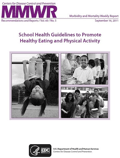
MMWR-MORBIDITY AND MORTALITY WEEKLY REPORT
Scope & Guideline
Transforming Health Insights into Action
Introduction
Aims and Scopes
- Epidemiological Surveillance and Reporting:
The journal emphasizes the importance of tracking disease outbreaks, health trends, and vaccination coverage across diverse populations, providing crucial insights into public health challenges. - Public Health Recommendations:
It offers evidence-based recommendations from health authorities, particularly the Advisory Committee on Immunization Practices (ACIP), focusing on immunization schedules, preventive measures, and treatment protocols. - Impact of Health Interventions:
The journal evaluates the effectiveness of public health interventions, such as vaccination campaigns and health policy changes, assessing their impact on disease incidence and population health. - Health Disparities and Equity:
MMWR highlights health disparities among different demographic groups, addressing issues related to social determinants of health and advocating for equitable access to healthcare services. - Emerging Health Threats:
The journal is responsive to emerging health threats, including novel pathogens and public health emergencies, providing timely updates and guidance for healthcare practitioners and policymakers.
Trending and Emerging
- COVID-19 and Its Variants:
The ongoing impact of COVID-19, including variant tracking, vaccination coverage, and public health responses, remains a central theme in MMWR publications, reflecting its significance in current public health discourse. - Vaccination Coverage and Hesitancy:
There is a heightened emphasis on vaccination coverage, particularly for COVID-19 and childhood immunizations, along with an exploration of vaccine hesitancy and strategies to improve uptake across various demographics. - Mental Health Impact of the Pandemic:
Reports addressing the mental health repercussions of the COVID-19 pandemic, including increased rates of anxiety, depression, and substance use disorders, have become more prevalent, highlighting the need for mental health interventions. - Health Equity Initiatives:
Emerging themes around health equity and addressing disparities in healthcare access and outcomes are increasingly featured, reflecting a commitment to understanding and mitigating the impacts of social determinants on health. - Infectious Disease Surveillance:
There is a growing focus on the surveillance of emerging infectious diseases, including Mpox and other zoonotic infections, as public health agencies respond to new threats and outbreaks.
Declining or Waning
- Non-communicable Disease Reporting:
There has been a noticeable decrease in the frequency of reports focusing on chronic non-communicable diseases, such as diabetes and heart disease, as the journal pivots towards addressing urgent public health crises like infectious disease outbreaks. - Environmental Health Issues:
Reports related to environmental health, including air quality and pollution-related health impacts, have been less frequently highlighted, possibly overshadowed by the pressing focus on infectious diseases and vaccination efforts. - Longitudinal Studies on Behavioral Health:
Longitudinal studies examining long-term behavioral health trends, such as substance use and mental health disorders, are observed to be less frequent, indicating a shift in focus towards immediate public health responses. - Routine Health Screenings:
Coverage of routine health screenings and preventive care metrics has decreased, as the journal has prioritized reporting on vaccination rates and infectious disease prevention in light of recent health crises.
Similar Journals

Central European Journal of Public Health
Empowering Public Health Through Comprehensive ResearchThe Central European Journal of Public Health, ISSN 1210-7778 and E-ISSN 1803-1048, is a vital academic forum published by the NATIONAL INSTITUTE OF PUBLIC HEALTH, Czech Republic. With its comprehensive coverage of contemporary issues in public health and medicine since its inception in 1993, this journal aims to bridge the gap between research and practice, fostering a deeper understanding of health dynamics within Central Europe and beyond. As a Q3 ranked journal in both the fields of Medicine (miscellaneous) and Public Health, Environmental and Occupational Health as per 2023 metrics, it provides an accessible platform for innovative studies, policy analyses, and reviews that contribute to the global discourse on public health challenges. Though primarily based in the Czech Republic, it welcomes contributions from a worldwide audience, enhancing its scope and impact. Researchers, practitioners, and students will find invaluable insights that not only enrich academic scholarship but also inform effective public health interventions.
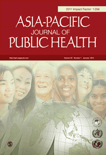
Asia-Pacific Journal of Public Health
Fostering collaboration to enhance community health.Asia-Pacific Journal of Public Health, published by SAGE Publications Inc, is a leading platform for disseminating scholarly research in the field of public health. With an impressive scope that spans from the late 1980s to the present, the journal offers a wealth of articles that address critical issues faced by diverse populations in the Asia-Pacific region. Categorized in the Q3 quartile for both Medicine (miscellaneous) and Public Health, Environmental and Occupational Health, it holds a significant position within its field, ranked 310 out of 665 in the Scopus database. Researchers and professionals have access to valuable insights that inform public health policy and practice, making this journal an essential resource for those aiming to enhance health outcomes in the region. While not currently open access, the journal's rigorous peer-review process ensures the integrity and relevance of its content. As the landscape of public health continues to evolve, the Asia-Pacific Journal of Public Health remains a vital resource for advancing knowledge, fostering collaboration, and promoting a healthier society.

Indian Journal of Public Health
Transforming insights into action for public health advancement.Indian Journal of Public Health, published by Wolters Kluwer Medknow Publications, serves as a pivotal resource in the fields of public health, epidemiology, and health policy. With a history spanning over six decades, since its inception in 1961, this esteemed journal offers significant insights into various health-related issues affecting the Indian population and beyond. As an Open Access journal since 2010, it ensures that crucial research findings are accessible to a global audience, promoting collaboration and knowledge sharing among researchers, professionals, and students. The journal currently holds a respectable status with a 2023 ranking in the Q3 category in epidemiology, health policy, medicine (miscellaneous), and public health, environmental and occupational health, placing it among the noteworthy publications in its field. With impressive Scopus rankings and an aim to drive public health discourse, the Indian Journal of Public Health is an essential platform for those dedicated to advancing public health practices and policies.
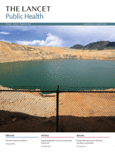
Lancet Public Health
Fostering innovation in public health research and policy.The Lancet Public Health is a leading journal in the field of public health, published by Elsevier since 2016. With its prominent Q1 quartile ranking in Public Health, Environmental and Occupational Health according to Scopus for 2023, and an impressive percentile ranking of 99th, the journal has established itself as a vital resource for researchers, professionals, and students committed to advancing public health knowledge and practices. Operating under an Open Access model, this journal ensures that groundbreaking research is readily accessible to all, promoting global collaboration and knowledge sharing. The scope of The Lancet Public Health encompasses diverse aspects of health, including the social determinants of health, epidemiology, health policy, and preventive medicine, making it a cornerstone for addressing contemporary public health challenges. Located in the heart of the United Kingdom, it aims to influence health policies and practices worldwide, showcasing transformative research and fostering vibrant discussions within the field.

Public Health in Practice
Fostering innovation in the realm of public health.Public Health in Practice is an influential open-access journal published by ELSEVIER, dedicated to advancing knowledge in the fields of health policy and public health. Since its inception in 2020, this journal has quickly established itself within the academic community, with notable rankings including Q2 in both Health Policy and Public Health, Environmental and Occupational Health, reflecting its commitment to publishing high-quality research. The journal operates out of the Netherlands and has adopted an open-access model to ensure that research is freely available to professionals, researchers, and students alike, facilitating knowledge sharing and impactful discussions. With a Scopus rank of #164 in Health Policy and #352 in Public Health, the journal aims to bridge gaps in research while fostering innovative solutions to contemporary public health challenges. Highly relevant to today's dynamic healthcare landscape, Public Health in Practice encourages submissions that contribute to evidence-based practices and advocate for effective public health policies.

Lancet Regional Health - Southeast Asia
Connecting Communities Through Groundbreaking ResearchLancet Regional Health - Southeast Asia, published by ELSEVIER, stands as a pivotal open-access journal established in 2022, dedicated to advancing regional health discourse across Southeast Asia. With its ISSN 2772-3682, this journal endeavors to provide a platform for high-quality research and innovative solutions in key areas such as Infectious Diseases, Psychiatry and Mental Health, and Public Health, Environmental and Occupational Health. Recognized for its exceptional quality, it has achieved Q1 rankings in these pressing categories, reflecting its commitment to publishing impactful findings that resonate with both the academic community and practitioners alike. The journal is vowed to fostering open access, enhancing the reach and applicability of its content to aid policy-making and community health advancements in the region. By facilitating access to groundbreaking research, Lancet Regional Health - Southeast Asia plays an essential role in shaping public health narratives and promoting collaboration among researchers, students, and healthcare professionals.
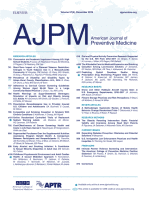
AMERICAN JOURNAL OF PREVENTIVE MEDICINE
Leading the charge in disease prevention and health promotion.AMERICAN JOURNAL OF PREVENTIVE MEDICINE is a premier publication in the fields of Epidemiology and Public Health, published by Elsevier Science Inc. With a commendable impact factor and ranking within the top quartile for both Epidemiology and Public Health categories, this journal serves as a vital source of cutting-edge research, reviews, and critical insights aimed at promoting health and preventing disease. Since its inception in 1985, the journal has been dedicated to disseminating high-quality articles that inform health policy, improve clinical practices, and enhance community health initiatives. It is readily available to researchers and professionals committed to advancing their knowledge and practice, ensuring the continued evolution of preventive medicine. The journal's reach and influence, underscored by its impressive rankings, position it as an essential resource for those looking to make a meaningful impact in the world of preventive health.

Journal of Health Research
Fostering impactful research for healthier communities.Welcome to the Journal of Health Research, an esteemed publication in the field of health policy and public health, published by COLL PUBLIC HEALTH SCIENCES at Chulalongkorn University, Thailand. With an E-ISSN of 2586-940X and an ISSN of 0857-4421, this open access journal has been dedicated to advancing scholarship since its transition to open access in 2018. The journal serves as a vital platform for disseminating high-quality research that addresses pressing health issues within both local and global contexts. It currently holds a Q3 rating in the categories of Health Policy and Public Health according to the 2023 Quartiles, and is ranked #395 in Public Health and #186 in Health Policy out of their respective categories on Scopus. With a commitment to fostering innovative approaches and interdisciplinary collaboration, the Journal of Health Research invites researchers, professionals, and students alike to contribute and engage in critical discussions that further the public health narrative.
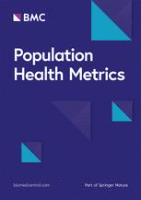
Population Health Metrics
Transforming Data into Health SolutionsPopulation Health Metrics, an esteemed journal published by BMC, has established itself as a leading platform for researchers and practitioners in the fields of epidemiology and public health. Since its inception in 2003, this open-access journal from the United Kingdom has been dedicated to advancing the understanding of health metrics, offering insightful analyses and data-driven research that address critical global health challenges. With an impressive Q1 ranking in both Epidemiology and Public Health, Environmental and Occupational Health categories, along with a robust Scopus percentile ranking in its field, it plays a pivotal role in disseminating impactful research findings. Researchers and professionals are encouraged to contribute to and engage with the journal's broad array of topics, ensuring that the conversations around population health continue to evolve and influence policy and practice worldwide. With the commitment to accessibility and quality, Population Health Metrics is essential reading for anyone dedicated to improving health outcomes at the population level.
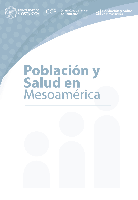
Poblacion y Salud en Mesoamerica
Fostering Collaboration for Better Health OutcomesPoblacion y Salud en Mesoamerica is a pivotal open-access journal published by the University of Costa Rica's Centro Centroamericano Poblacion. With an ISSN of 1659-0201 and an E-ISSN of the same, this journal has been dedicated since 2003 to advancing the fields of demography, epidemiology, health informatics, and public health within the Mesoamerican region. Addressing critical health and population issues, it aims to foster a deeper understanding of demographic trends and their implications on health policies. As of 2023, the journal ranks in the Q4 quartile across several categories, reflecting its commitment to publishing quality research while serving as a platform for emerging scholars and seasoned professionals alike. Although it is currently in the lower quartile ranks, the journal seeks to establish itself as a vital resource in the context of Mesoamerican social sciences and health, making it an essential tool for researchers and practitioners interested in regional population health dynamics. Its editorial board is comprised of experts dedicated to enhancing the scholarly conversation surrounding population health and policy in Central America.